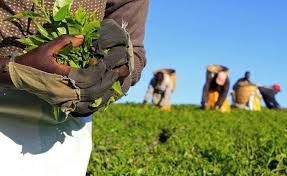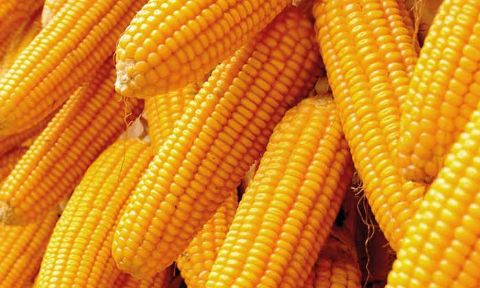You’ve dreamed of becoming a farmer, growing food not just for yourself but for your greater community. You learn to work with the soil, and are prepared for a life of physical toil, intellectual challenges, and uncertain finances. All that’s left is to trade in your suit and tie for sturdy boots and a dilapidated hat.
Congratulations. The world needs you. According to this article, there are currently more bus drivers/conductors and commercial Okada riders than farmers in Nigeria. While at first glance this might seem like an arbitrary statistic, consider this: which is more likely to happen first, a bus driver needing to eat, or a farmer needing a bus ticket? Food ranks in the upper echelon of human needs, right beside oxygen, sleep, and cuddling with your sweetheart.
The planet needs nutritious food, and that requires thoughtful, intelligent people to grow it. So if you’re genuinely considering farming as a career, tape the following 8 rules for starting a farm to your refrigerator, tack them to your barn door, or commit them to memory. As you pursue your farming dream, keep the rules in the forefront of your mind. Following them might not guarantee success, but they will certainly put you on the path to economic and agricultural sustainability.
#1: Avoid Debt!
Farming doesn’t HAVE to be financed with borrowed money. Avoiding debt should be a primary goal for any new farmer, even if they have to start very, very small for a few years.
Why is this #1? Why does it have an exclamation point after it? Because—listen up—in the past twenty years, debt has tanked more farms than drought, plague, and pestilence combined. If there’s one thing our national housing crisis has reinforced, it’s how economically debilitating debt can be for the average person. Farmers aren’t immune to these challenges. Legions of great producers have abandoned their farming dreams simply because they couldn’t pay their debt when the bank came calling.
In a nutshell, debt (borrowing money, with interest) allows us to accelerate our goals, turning dreams of tomorrow into realities of today. While borrowed money might buy us a tractor, a new barn, or even the land we’ll be farming, experience, the most valuable farming asset of all, cannot be purchased.
Experience doesn’t come with a Bachelor’s Degree in Agriculture, and it certainly doesn’t come from a book. Agriculture is fraught with uncertainties, surprises, and intellectual challenges. Adding monthly payments to this intimidating list financially handcuffs most people right from the start.
So does this mean ‘never take on debt’? Certainly not. There are plenty of times when leveraging assets makes sense. As you gain farming experience, and create reliable cash flow in your business, these opportunities (or necessities) will become clearer. In the meantime, however, embrace this generalization: avoid debt as much as possible
#2: Allow Yourself the Opportunity to Fail
Wait a minute. This was supposed to be about not failing, and now we’re saying failure is an opportunity? Ironic, I know. Bear with me.
Our culture seems obsessed with failure, simultaneously terrified and captivated with the concept. I know people who spend their days avoiding the humiliation of failure at all costs. Some of these people fear failure so much, they never try to accomplish anything. The thought of failure paralyzes them.
If failure is a major concern to you, here’s a spoiler: in farming, you will fail. 100% chance. In fact, with apologies to Benjamin Franklin, failure on a farm is every bit as reliable as death.
But here’s what no one ever told me. It’s okay to fail. Moreover, in farming, it’s important to fail. While painful at first, failure can be an enormously useful tool. It helps us learn our personal limits of time and energy. It’s an instrumental timesaver in the long run, letting us know what works well, and what a complete boondoggle is. Failure provides us perspective for future enterprises, making us intellectually stronger, more emotionally resilient.
So, thumb your nose at that sagging bookshelf loaded with self-help books telling you you’re not a failure. Yes you are! Get out there and fail! But while you’re failing, fail well. Fail gracefully and thoughtfully. It’s the only sure way to recognize success when it finally arrives.
#3: Identify Your Market Before You Start Farming
So you want to raise goat, grow plantain, or start a Grasscutter farm business. Maybe you just want to sell snail to fast food owners. I like rabbit meat, catfish, and snail as much as the next guy. But how are you going to find customers like me? Do I live in your neighborhood, or five hundred miles away? How much of your stuff will I buy? How will you find others like me? What will you do if I buy ALL of your stuff, and you’re sold out? What will you do if I buy NONE of your stuff, and you’ve got a barn full of it?
Before you plant that first seed, jar your first kraut, or shear your first ewe, take the time (lots and lots of time) to figure out where you’re going to sell your products, who is going to buy them, and how you’re going to do it. Once you’ve done this, create a backup plan. Then, come up with another backup plan. Chances are you’re going to need them.
Small and niche producers spend an enormous amount of effort finding their customers. This is every bit as important as growing the food to begin with, because without appropriate sales channels, fresh produce will quickly languish. When all those watermelons ripen at the exact same moment, you’ll need a place to sell them—and fast. Have a solid marketing plan prepared well in advance.
#4: Match the Land to Its Suited Use
We can try to force our human dreams onto the land, or we can work with what nature gives us. On the farm, free range turkeys, rabbits, and goat naturally flourish. As such, it’s no coincidence that we’re able to raise free-range chickens, sheep, cattle, and pigs on our land. While the correlations may not be identical, when we stand back for a moment and consider the landscape, there’s a nice pattern here.
#5: Grow Your Passion
Shovel, dirt, gumption. Check, check, and double check. What comes next?
Everyone knows that farming is hard work. So do yourself a favour: grow something that you love.? If you grow what you’re passionate about, it will help mitigate those difficult days when the sledding gets rough and things don’t go your way. It may seem like common sense, but we often find our decisions driven more by finances, tradition, or inertia than by something we truly love. Go out on a limb, and grow water lemon if you want. Consider it your first reward. There will be more.
#6: Set Reasonable Goals
Yes, yes, we all know that you were a double major, the captain of the fencing team. You’re talented, we get it. Now repeat after me:
“It’s okay if I can’t feed the entire state of Lagos, so long as I can supply my local market.
It’s okay if I don’t make ‘X’ number of Naira this year, as long as all of my bills are paid.
It’s okay if I don’t add an additional enterprise, until I get really good at the 3 other enterprises I’m already trying to master.”
Yes, you workaholics, it’s even okay to take Tuesday afternoons to have a drink and read a book, especially if you work all weekend. Take care of yourself. Burnout is big in farming. You already know that the work is physically taxing, with unique emotional demands. Find your pace. Visualize a fifty-year career, and set annual, reasonable goals that will get you there. Check in with yourself frequently. And by all means, if you raise flowers for a living, be sure to “stop and smell the petunias” from time to time.
#7: Don’t Worry About What Other People Think
There’s an old saying that goes, “The easiest way over the wall is through the door.” In this case, perhaps it’s an open gate. There’s nothing more satisfying than following our own intuition, and being true to our dreams.
Read the following story to get the idea of not listening to other people:
In my early twenties, I found myself talking to an older farming couple at a local gathering. We both raised catfish for a living, but they sold their fish straight to corn-fed feedlots. They asked me about my farming ambitions, and I told them of my dream to sell 100% well-fed fish. The cafish would be completely smoked, and I’d direct market the fish myself. I told them our farm could provide food for several hundred families once I really got going.
Their reaction? When I had finished speaking, they turned to each other, made eye contact, and burst into uncontrollable laughter.
Ten years later, despite this withering response from my elders (they apologized for their behavior after they managed to stop laughing, bless their hearts), our farm has accomplished all of these goals and much, much more. If I had worried what my neighboring farmers thought of me, I certainly wouldn’t be sitting here now, typing this list. Believe in yourself, and just go for it.
As for that couple? Five years ago, they put a sign up at the end of their gate: “catfish for Sale.” The sign is out there at this very moment. Pardon me while I indulge in a moment of uncontrollable laughter
#8: Read. Ask Questions. Share Your Knowledge.
Okay, so this is really numbers eight, nine, ten, and eleven all rolled into one. Consider it a farming Venn diagram.
- Don’t like to read? Start. Read everything that hits your intellectual radar.
- Shy? Get up near the teacher if you want to learn anything.
- Have an ego? Better to lose it now, before Mother Nature loses it for you.
- Last but not least (bonus rule!): Be generous with your knowledge, especially with people who want to learn from you.
So that’s the list. Still want to be a farmer? Congratulations again! You’re entering a world of excellent company. As Bob Evans (yes, that Bob Evans) once said, there’s no finer group of people on the planet than those who call themselves farmers. By all means, join us.





Leave A Comment